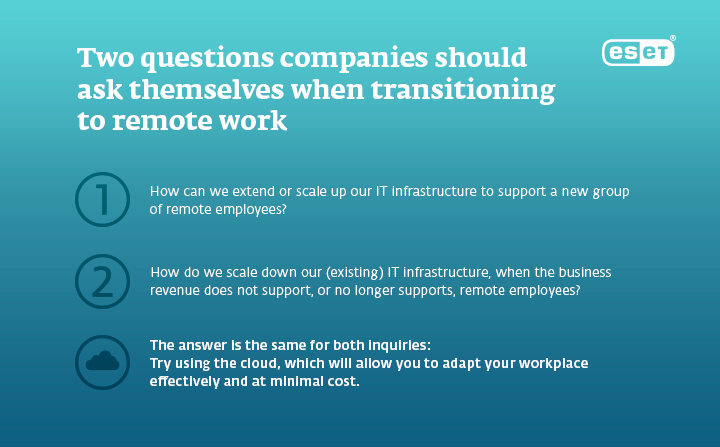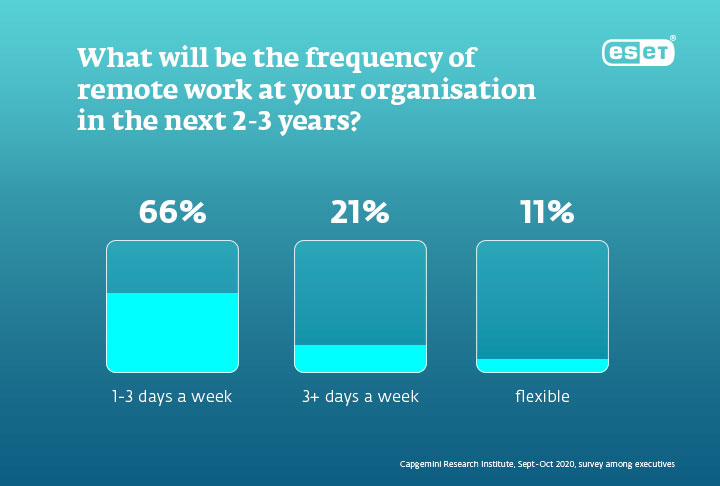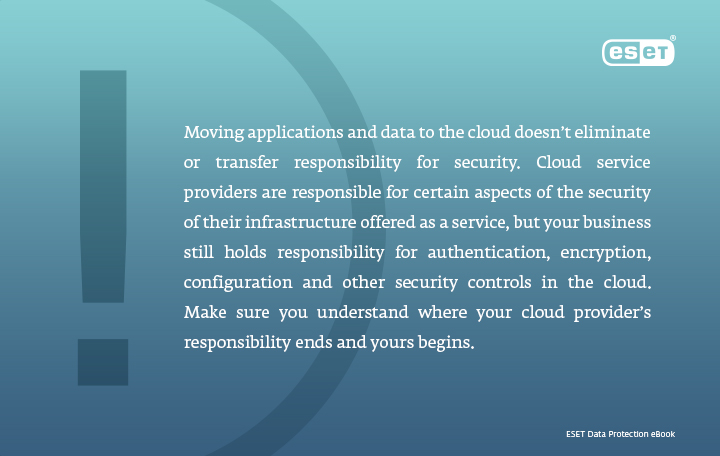If you’re looking for a way to create a safe, productive and flexible workplace, rely on the Cloud. Here are the main advantages you’ll appreciate in the long run.
Remote workforces are the future. The rise of COVID-19 has brought not only social and economic changes, but also a huge shift toward remote offices and flexible workspaces. Companies that, until now, had no experience with digital solutions can clearly see the need for digitising their business processes. Managing this new working reality can be a challenge, as a new IT infrastructure calls for investments – but if you can find clever solutions that also serve in the long run, every pound spent will be worth it.
One such solution is the Cloud – if you want to create an online office, you should provide as many services and as much storage as possible in your online environment. The Cloud will help you keep your data safe and accessible from anywhere, and you will not have to waste money on hardware and software, that you actually might not need in the future. If you need more space, you just extend your cloud storage. And other benefits? Here are a few.
1. The Cloud helps you build a secure and easily manageable network of remote workers.
Updates, security product configurations and deployment of data protection solutions – all of that can be managed on all company devices at once and remotely, using a cloud-based management dashboard. It will allow you to send one single link to your employees, requiring just a click for software installation to begin. By not having to manage every device separately, you’ll save plenty of time, which can be invested into finding digital solutions for other business areas and processes, or revising your business continuity plan.

2. Cloud solutions boost business value and drive productivity.
According to a 2019 study conducted by the IDC, almost 71% of business decision makers agree that “adopting a future workspace model that includes a flexible, intelligent, collaborative virtual as well as physical work environment will be important to improving employee productivity and driving business value in the future.”

What does that mean in practice? It will be necessary to deploy solutions that allow employees to access as many business and data platforms as possible, as well as to use new collaborative tools that stimulate productivity.
When it comes to accessibility and productivity, cloud solutions can save you and your employees a lot of time and work: Information can be easily stored in one place, and documents can be accessed from almost any smart device. What's more, some cloud services even let you edit documents online, without having to download them in the first place.
Another option is creating a hybrid environment, which makes use of both cloud and offline solutions. You can, for example, back up your data on a hard drive as well as on the Cloud. Having important data stored in two different places raises the probability that you will not lose files in the event of a cyberattack, which might hit you hard if you fail to secure your endpoints properly.
In the not-too-distant past, the preferred deployment solution was on-premises – servers and storage devices located directly in the office or in the office building. These can have high administration requirements, and additional contractors often need to be hired. Since cloud solutions take away the hassle of buying, installing and configuring any hardware on-premises, there is now a greater shift toward the Cloud. A cloud service provider can handle a lot of the costly grunt work.
3. Thanks to the Cloud, you’ll be prepared for sudden changes.
Regulations changed quickly with the arrival of COVID-19. The more digitised companies were, the better prepared they were to manage workplace disruptions. If they were already using a cloud solution, then employees could comfortably access files from home, and they avoided the rush to obtain needed hard drives and other physical assets on short notice.
If certain files can only be accessed from office servers, storage devices or desktops on location, your business continuity plan might be wrecked. Imagine you have to send a crucial file to your client, and all your files are located on a device that is locked in an office that you are not allowed to visit at the moment. A vital contract might fail, purely because you were dependent on on-premises storage.
More crises might arise in the future. But if you successfully manage to integrate cloud solutions into your business, they can’t hit your company as hard and you’ll be able to proceed with operations that are pivotal for your ongoing success.

Benefits of the cloud in a nutshell:
(Don’t hesitate to forward these arguments to your CEO)
Greater agility and responsiveness: You can access applications and data in the Cloud from anywhere, at any time, on any device.
Faster time-to-market: You can develop and deliver new products and services more quickly in the Cloud.
On-demand scalability: Additional software licencing and/or infrastructure can be provisioned and deprovisioned as needed, which supports the needs of rapidly growing and cyclical businesses that may not be able to accurately predict market changes and business growth.
Reduced capital investments: You can deploy your entire IT infrastructure in the Cloud and forgo costly capital investments. The Cloud offers predictable “pay as you go” subscription-based services that allow you to budget your IT needs as an ongoing operating expense and only pay for what you use.




